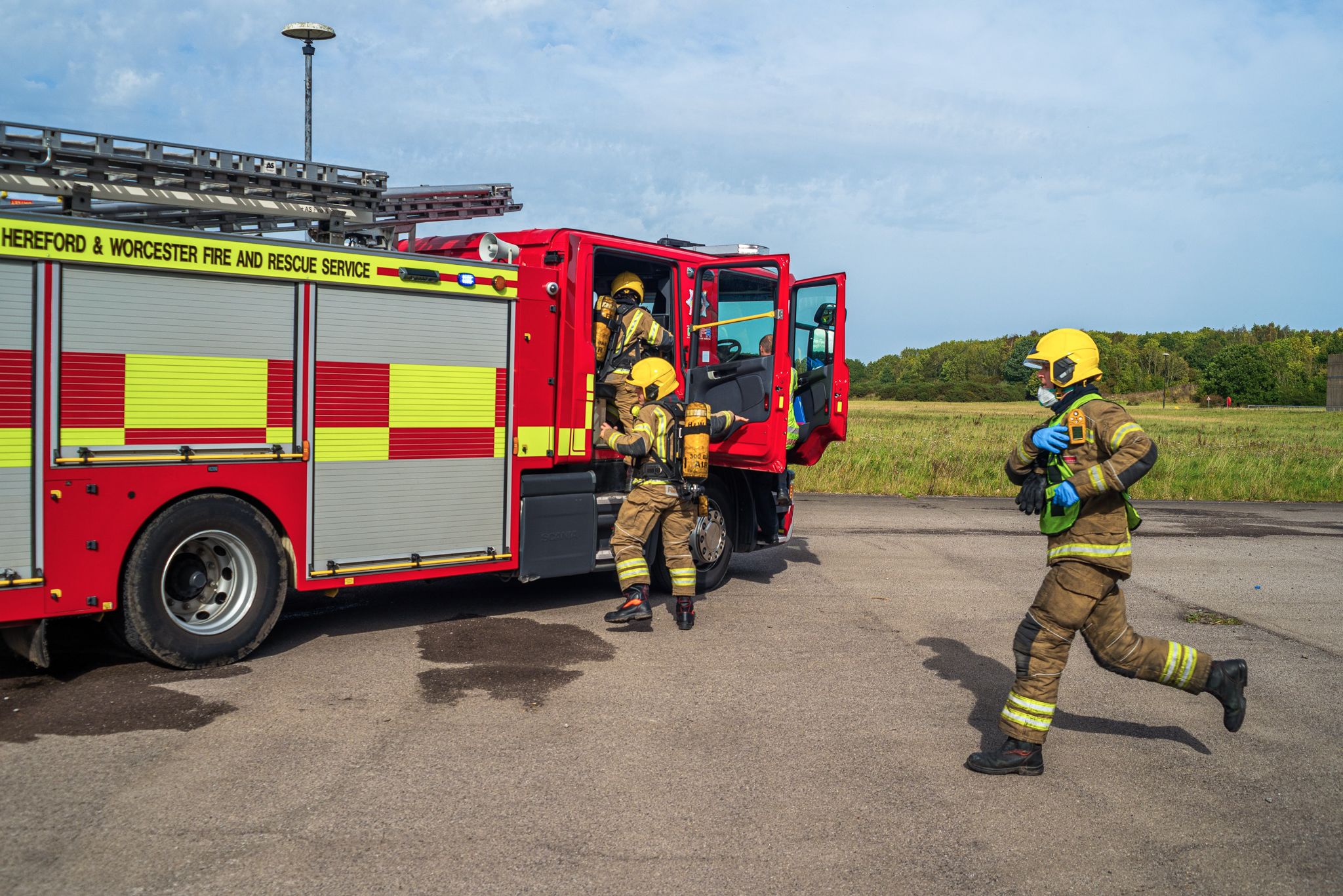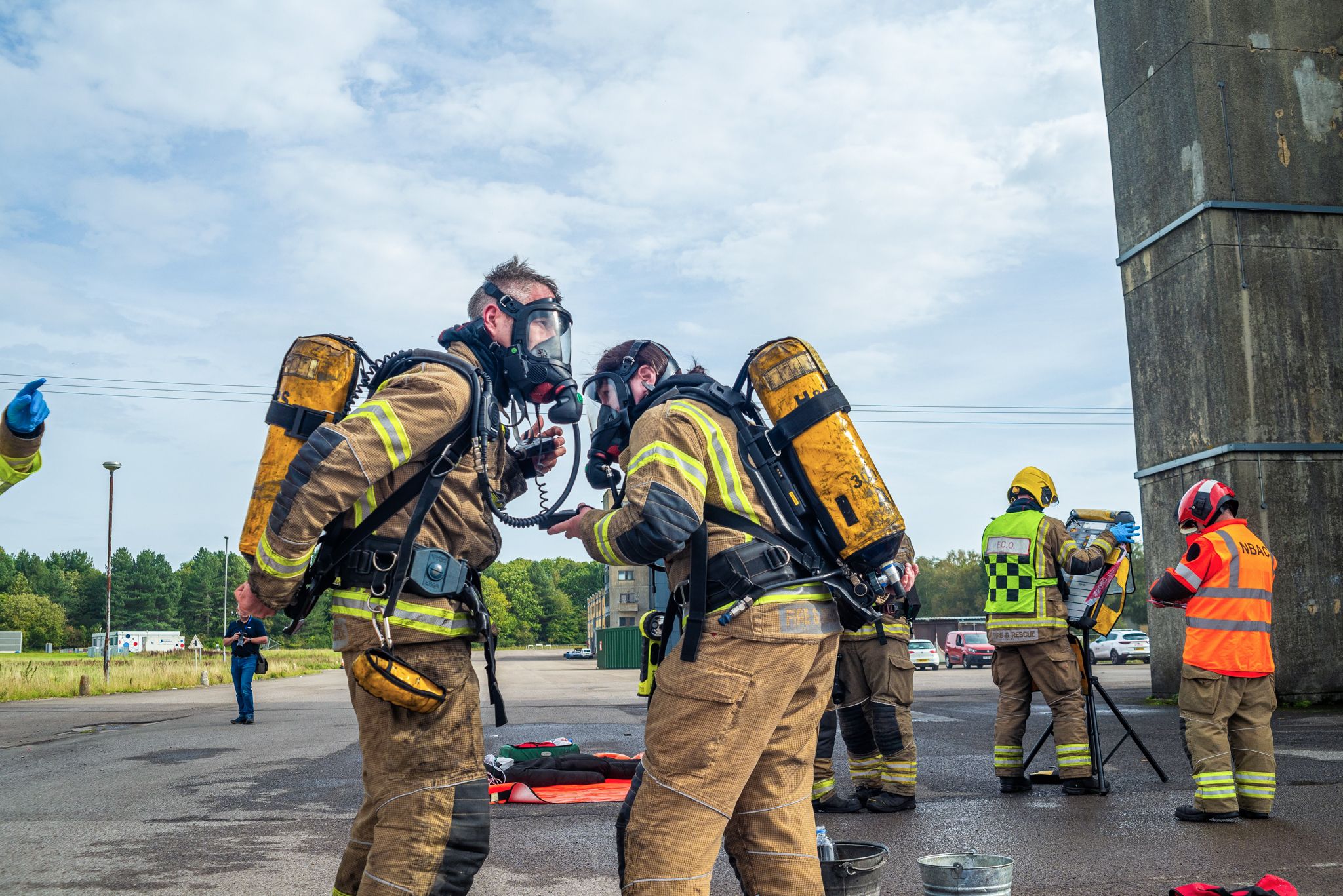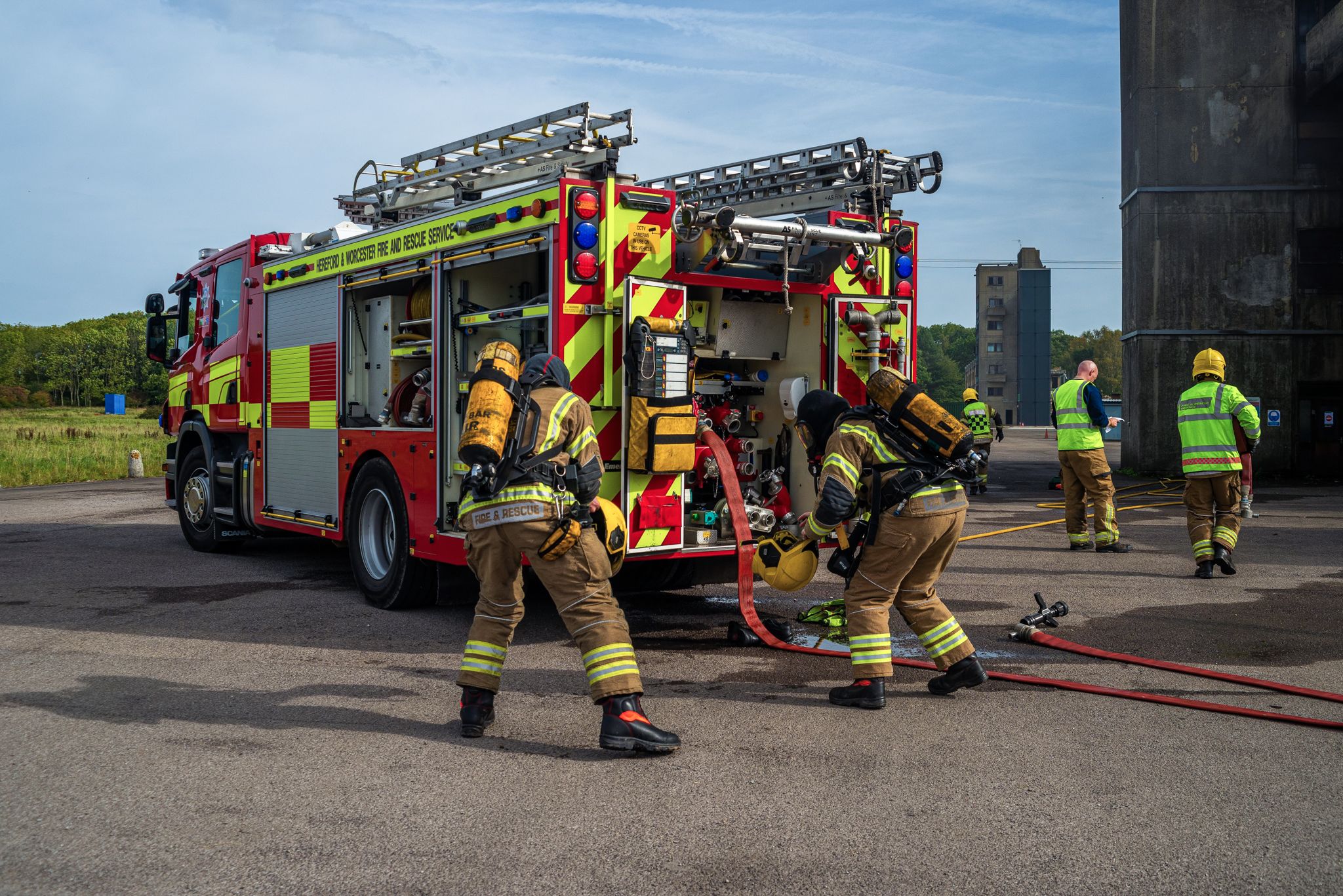False Alarms
HWFRS is changing its response to Automatic Fire Alarms (AFAs)
From 30th September 2024 between 08:00 and 18:00 daily, calls received from commercial premises, such as shops, factories and offices will be filtered to ensure that a response is only sent where physical signs of fire have been confirmed.
Where alarms are activating and there are no signs of fire during these times, a fire engine will not be sent* – these should be attended to by a suitable alarm engineer.
* Higher risk premises e.g. domestic, residential or other sleeping accommodation, public buildings or places of education will be exempt from call filtering to ensure a response is always provided.
The Fire Service will always respond to a genuine 999 call.
Help us to reduce false alarms
It is perhaps a misconception that false alarms are simply an annoyance or inconvenience. In reality, they impact considerably on the cost of our service provision to the rate payer, the prosperity of commerce and more importantly, the safety of the public.
There are three types of false alarms:
- Malicious (or hoax) where a call is made in the knowledge that there is no fire.
- Unwanted fire signals from fire alarm and fire detection systems, where alarms operate due to a mechanical or electrical fault, or false activation by non-fire conditions (e.g. cooking fumes, dust, cigarette smoke).
- Good intent where a call to the fire and rescue service is made in the mistaken belief that a fire has occurred e.g. a smell of smoke from a bonfire.
What are the impacts of false alarms?
- Disruption of business (downtime, time wasted, loss of business and theft).
- Erodes confidence in the value and reliability of Automatic Fire Alarm (AFA) systems and discourages people from taking these systems seriously.
- False alarms unnecessarily transmitted to Alarm Receiving Centres impacts on their resources. Whilst dealing with false alarm alerts, operators are unavailable to deal with real emergencies.
- Diverting essential services from emergencies (putting life and property at risk).
- Cost to business of On-Call fire fighters being released.
- Unnecessary risk to crew & public whilst responding (accidents).
- Disruption to arson reduction, prevention, community safety (education, domestic smoke alarm fitting) & business support activities.
- Disruption to training of operational personnel.
- Impact on the environment of unnecessary appliance movements (noise, air and traffic pollution).
- Drain on public finances.
- The impact on Responsible Persons (RP) where persistent mismanagement of fire alarm signals has resulted in withdrawal of AFA attendance.
- Financial impact on premises where FRS apply charging for attending false alarms.



Unwanted fire signals from automatic fire alarm (AFA) systems
By far the largest cause of calls which turn out to be false alarms comes from automatic fire alarm and fire detection systems. In Herefordshire and Worcestershire between 2009 and 2022, nearly 97% of all AFA activations were false alarms.
Generally, the causes of these unwanted activations fall into three broad categories:
Faulty equipment alarms
Perhaps the most serious of the categories – and the one where fast action can have the biggest potential impact – is an alarm caused by faulty equipment. Reducing false alarms starts at the design stage. Every effort should be made to design the likelihood of false alarms out of an installation, with all necessary information recorded and shared with the customer.
A proper service and maintenance programme is essential to ensure the fire alarm and detection system works when it is needed most. British Standards recommend that the number of service visits per annum should be a minimum of twice a year (with the actual number dictated by a suitable and sufficient risk assessment).
Owners of these systems must ensure that the engineers who service their fire alarm systems are competent to do so.
False activation by non-fire conditions
Next to faulty equipment, these activations produce the second largest number of false alarms. Common causes include:
- Cooking fumes (due to cooking in inappropriate areas, or incorrectly sited detector heads).
- Dust from work or maintenance processes (during alterations, hot work with insufficient control measures).
- Insufficient or incorrect training (testing fire alarm systems without notifying monitoring centres, work on systems without first isolating them).
It is the duty of the responsible person to ensure that their fire alarm and fire detection systems are correctly maintained by a competent person, and any systems that continue to give false activations are indicative of a failure in the management of the ‘preventative and protective measures’ required by law.
False alarms caused by good intent
We do not want to discourage anyone from making an emergency 999 call or operating a fire alarm, if they genuinely believe there is a fire. We advise that anyone who is carrying out an activity that may give someone else cause to think a fire has started should inform the necessary people of their activity.
This may include:
- Informing the fire and rescue service that they are burning rubbish
- Informing managers or occupants of a building that they are carrying out hot work

What to do if your business has a false alarm?
- Firstly, what was the cause of the false alarm? Was it due to faulty equipment? Does the environment or work activity need reviewing?
- Did any evacuation go ahead as per evacuation drills? Did everyone hear the alarm and follow the premises fire emergency action plan?
- Did a methodical check of the cause of the alarm take place before contacting the Fire Service? If you have an automatic fire alarm system which connects to an alarm receiving centre to call the Fire Service, did they contact you, could you have made the Fire Service aware of alarms known to be false?
- Any investigation of the cause of a Fire alarm should consider the safety of the person checking the alarm and actions on discovery of signs of fire e.g. heat, smoke, flames.
- Record the false alarm in your log book and include any changes made to reduce causes of future false alarms.
- Review your fire risk assessment and staff training.
It is not the responsibility of the fire service to reset fire alarm panels, remove or replace detector heads or fix break glass call points – this should be done by a suitably competent person or alarm engineer.
How you can help us reduce false alarms?
Are you a business owner?
If you are a business owner consider how your alarm system is managed:
- Keep Automatic Fire Alarm (AFA) systems appropriately maintained and serviced.
- Ensure your Alarm Receiving Centre has up to date contact details for the premises and out of hours contact details.
- Record activations in your logbook to identify fault trends.
- Train and educate your staff on alarm procedures.
- Review and update your Fire Risk Assessment.
Consider also how the system could be improved or protected:
- Consider the suitability of the detector type and its position.
- Upgrade automatic fire detection systems to multi-sensor.
- Fit manual call points with protective covers to prevent accidental/malicious breakages.
- Contact your alarm engineer/fire risk assessor for advice and guidance.
- Always pre-warn your Alarm Receiving Centre before testing or undertaking any maintenance.
Are you an Alarm Receiving Centre?
If you are an Alarm Receiving Centre which handles calls that are triggered from businesses and pass these on to the Fire Service, you need to ensure you follow the code of practice for summoning a Fire response via Alarm Monitoring Organisations.
Understand the premises type, its use and occupancy
Different premises will pose different risks in the event of a fire and may initiate a different response from the information you provide.
- Ensure you understand whether the premises is residential, commercial or of mixed use.
- Ensure you understand whether the premises is occupied or evacuated, whether it operates at night or is unoccupied.
- What activities is carried out at the premises e.g. retail shop, fast food shop, hotel
- The premises normal operating hours
Maintain up to date contact/keyholder details
Contact details for keyholders or other responsible persons may change frequently, however these need to be up to date to provide an accurate understanding of the alarm occurrence. Consider liaising with the premises to ensure a robust call back procedure is in place for actions to take in the event of a fire alarm signal.
Confirm the cause of the alarm prior to calling the Fire and Rescue Service
Alarm Receiving Centres on receipt of a fire alarm signal should endeavour to confirm the cause of the alarm by calling the premises and if no response, the keyholder(s), before contacting the Fire Service. An understanding of whether the cause of the alarm has been investigated may assist to determine whether there are actual signs of fire e.g. flames, heat, smoke, smell of burning etc. Some fire signals also indicate a higher reliability in confirming the presence of a fire e.g. sprinkler activation, co-incidence or multiple detector activation. This information should be shared with the Fire Service.
Promote the appropriate management of AFA systems by responsible persons
Ensure that premises conducting any fire alarm tests notify you of these being carried out prior to the test being conducted. Confirming this with the premises will avoid any response to false alarms. Where a false alarm is confirmed from the premises, ensure this information is promptly passed to the Fire Service to prevent unnecessary attendance.
Guidance and Codes of Practice for Alarm Receiving Centres
